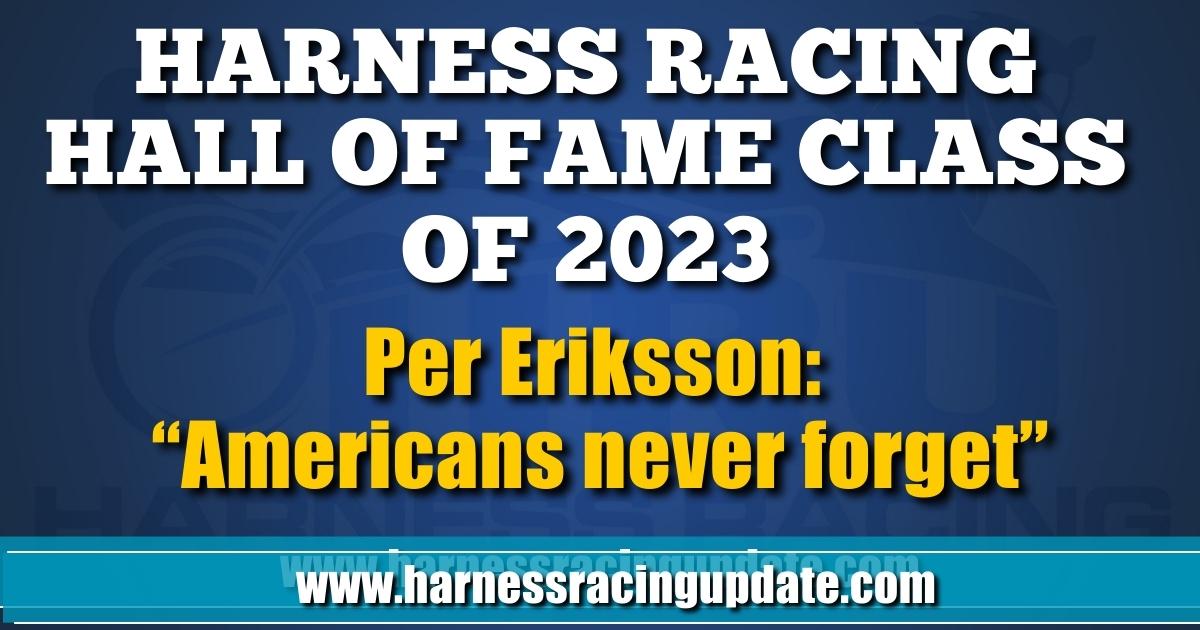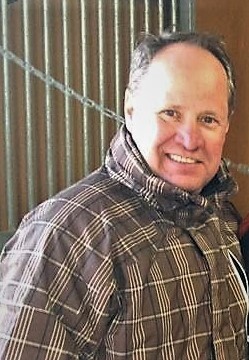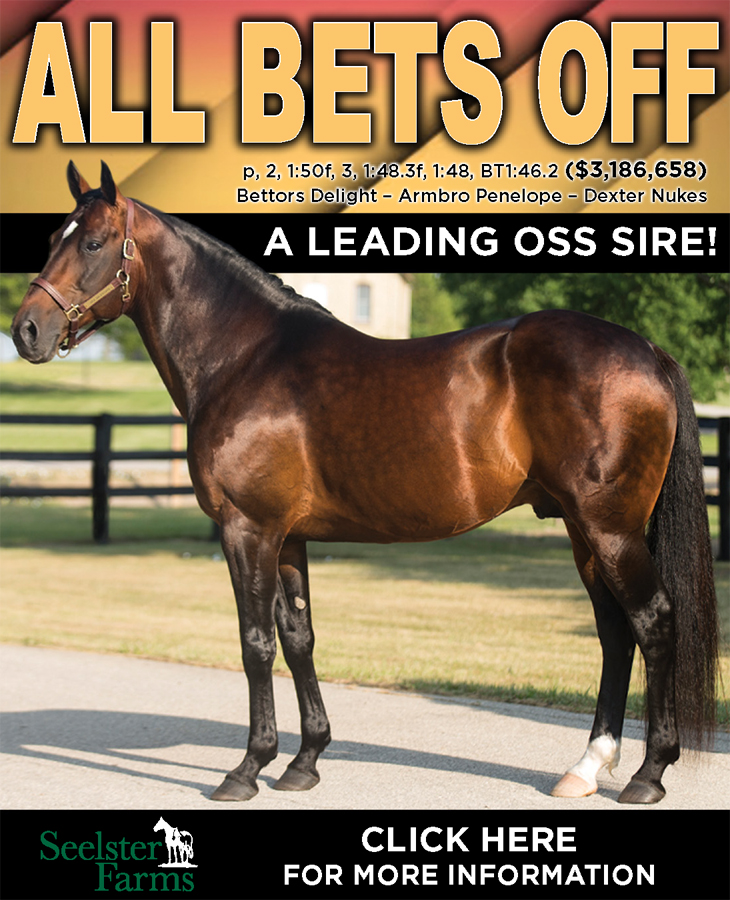

“Americans never forget”
Twenty years after leaving the U.S. to return to Sweden, three-time Hambletonian-winning trainer Per Eriksson will be inducted into the Harness Racing Hall of Fame.
by Thomas Hedlund
An exemption regarding the visa allowing Per Eriksson to leave Sweden for America became life-changing. As a 20-year-old groom, he wasn’t initially allowed to enter the U.S. for work. The age limit, at that time, was 21. But, the exemption was approved and Eriksson embarked on a new adventure overseas.
That American adventure produced some memorable moments in harness racing; so memorable, in fact, that Eriksson will be officially inducted into the Living Hall of Fame tonight (July 2) in Goshen, NY.
So how did Eriksson end up as one of the most successful trainers in the world? And why did he leave Sweden in the first place?
”I worked for Ulf Nordin as a groom and his father, Sören, who had left Sweden for America one year earlier, needed some people to take care of his horses. So I thought it would be exciting to try a new job in the business. After six months or so, Sören needed a second trainer and I was asked for the task,” Eriksson said this week on the day before he travelled to the U.S. for the induction.
From there, Eriksson quickly opened his own stable.
”Some of the owners in Sören’s barn ended up in a schism with him and they eventually asked me if I was interested in training their horses, and so it became,” Eriksson said.
He was still very young when he had to face the increased responsibility that came along with his new role in the sport, but pretty soon he began to be successful. In 1983, the same year he became a lead trainer, Eriksson returned to Sweden with Spirits Supreme, who was invited to contest the Elitloppet at Solvalla.
How does it feel to be inducted into the Hall of Fame, as a Swede, and at this point in your career?
”It’s fantastic. I’m not bragging now, but with the merits I had in America… I’m not very surprised and that is also because they don’t forget you in the USA. But, of course, it feels amazing to get this award 20 years after I left the country.”
You never thought that too much time had passed and it was too late for you to be inducted?
“I honestly think that many people wanted me to be in the Hall of Fame and, as I said, Americans never forget.”
Looking back, any regrets about leaving the U.S. in 2000 when you were at the top of your game?
”No, we’ve never regretted that, my wife and I. We had promised our kids that they were going to school in Sweden and there were no negative energies surrounding us when we moved back home to Sweden. But there are things I miss from my years in the U.S. The country, people, the life we lived there… I can miss that sometimes.”
What can you tell about, and what do you remember most about your three Hambletonian winners?
“Prakas was a special horse, a star and a damn good horse, while the other two winners, Giant Victory and Alf Palema, were longshots in the Hambletonian. There were many special things about Prakas. My wife took care of him and we weren’t even together at that point, so that’s a nice story, too. Alf Palema was partly owned by me and economically that victory was important and big, but with Prakas… the pressure I felt — and you must remember that I still was young. I was only 25 years old when he won Hambletonian. Besides, the horse was syndicated for a large amount of money.”
What single accomplishment are you most proud of, besides the Hall Of Fame induction?
”I’m very proud of the entirety of all the years in America. Ninety-eight per cent of my life was about running the company and that became our life. So, the fact that we were surrounded by so many good people — young people that wanted to be a part of the team — for so many years is probably what makes me most proud.”
Which people have been most influential in your career?
”Sören Nordin, for sure, is the trainer that influenced me most. Sören was a master and it was incredible just to be able to sit beside him when we trained the horses. And the fact that Sören was not a master in the English language was an opportunity for me to be even closer to him as he needed help with translations pretty much everywhere we went. Carl Dugan, who bred Baltic Speed, helped me a lot economically when I started as a trainer in the U.S. So, he was important for me for another reason than Sören’s influence on me.”
Who will be by your side tonight in Goshen?
”My wife, three of my four children, Jonas Czernyson… We are 11 in total so it will be a pleasant day.”
Last thing, and it’s another achievement in your professional career. In 2015 you created history in Sweden when your Royal Fighter won one of the elimination heats for the Elitloppet with female driver Jennifer Tillman in the sulky. She was the first woman to win an Elitloppet race.
“Yes, that was really a big thing and a very happy moment for me and Jennifer. The horse had no luck in the final and finished between horses with a lot of power left, but the whole day was very special, and surprising.”















